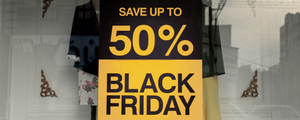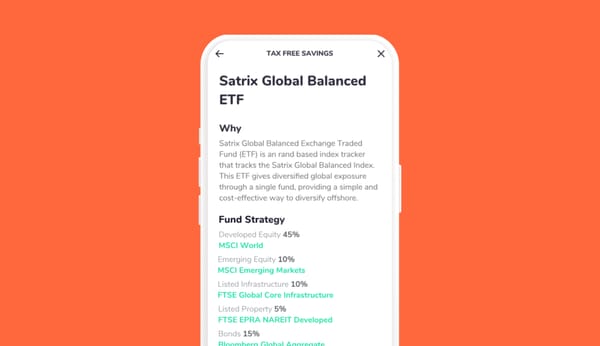For most beginners, the first thing that comes to mind when they hear "trading" is stock trading. At the same time though, many ultimately find this to be an intimidating or unappealing option. This leads them to search for alternatives, and in that search many ultimately land on the forex market.
But why exactly is this the case? To answer this question, let's first look at what, precisely, the forex market entails.
What is Forex Trading?
For starters, forex trading involves trading currencies on the foreign exchange market. If you're trading forex, your goal is to profit from the change in value of currencies in relation to one another. In the past, you might have heard news about the U.S. dollar getting stronger and weaker, and this form of trading takes advantage of these movements.
You might also be familiar with this concept if you've ever travelled abroad and had to exchange your money for the local currency. Say for example that you were visiting Europe from South Africa, and that you wanted to exchange 10,000 ZAR to carry with you on the trip. With the exchange rate at 17.29 ZAR per 1 EUR (as of this writing), you would exchange those 10,000 ZAR for roughly 578 EUR to carry on your trip. Then say however that you have 100 EUR left over at the end of the trip, and the exchange rate changes to 20 ZAR per 1 EUR. You could then exchange your 100 EUR back for 2,000 ZAR. The ZAR would have less worldwide value in this instance, but you'd end up with 20% of your original 10,000 ZAR despite spending 83% of your EUR. This is not a particularly likely example, but it illustrates how currency exchange rates can effectively result in money gained or lost.
That said, each trade involves buying one currency and selling another. That's why you'll see investors always trading in pairs, like EUR/USD for trading U.S. dollars and the Euro (by far the most traded pair according to data on Statista). It works in a similar way to stock trading, except that instead of predicting the future success of a company, you’re guessing the future success of one currency against another.
Why Try Forex?
If you thought the stock market was huge, then you’ll be surprised to hear that the foreign exchange market is actually the largest and most traded in the world. That's a remarkable fact, considering that it is a few decades younger than the New York Stock Exchange. Despite this, daily volume in forex exceeds $5 trillion in trades, according to an article on forex by FXCM. And it's an astounding number for sure.
But it's also a number that speaks to one of the main reasons people try forex: It's liquid and exciting - just like gambling (which also means you will probably lose more than you win)! This is one market in which you simply never have to worry about the speed or finality of your trades. Because there are always buyers and sellers, there's always someone on the other side of an intended transaction.
Forex is also viewed as a convenient option by those who like flexible trading hours. While it's a popular mischaracterisation that the forex market never sleeps, it is open far more than any stock exchange. Forex traders are able to maintain activity for 24 hours a day throughout each work week. Beyond providing flexibility, this also more or less ensures that the market remains in a constant state of volatility –– which, to traders, means constant opportunity to play price shifts for profit.
Stocks or Forex?
So should you opt for forex instead of stock market trading? Ultimately that's a decision for you (and you may want to refer to our ‘What Type of Investor Are You?’ piece to further explore your own preferences!). But let's consider some of the basic factors involved in the decision....
Both stocks and forex trading require plenty of research. You need to spend time studying the markets in order to reduce the risks of losing. However, in addition to the various appealing factors relating to forex outlined above, some traders specifically prefer this market to stocks because of leverage. This is the market term for describing how far your money can take you.
In stocks, you’ll need a margin account for leveraging. However, not all stock brokers grant investors a margin account, since there are qualifying requirements. In forex, there are no real requirements for leveraging. You just need to open a forex trading account, and you'll be able to make deals with leverage (whereby the broker essentially stakes you for larger trades than you can actually make with the amount in your account). This enables traders to reap significantly greater rewards when trading successfully but also means your money can get wiped out in a flash!
On the other hand, Top Ten Reviews’ overview of the advantages of stock trading points out that stocks are steadier and less hectic. There are even stocks that can keep their values in times of inflation or crisis. This makes stocks more appealing to many for long-term investment. Forex trading can be very risky!
Finally, it's also important to remember that you don't have to choose one or the other! While you may trade primarily in stocks or forex, there is something to be said for keeping some of your funds in both as well. Diversification is a vital component of any successful investment strategy, and dictates that your wealth should be spread across assets, asset classes, and even entire markets in order to enjoy the most opportunity for growth. So, while you can certainly choose to direct more energy toward one or the other, you can certainly trade in both stock and forex markets if you really wanted to (but only with money you are willing to lose).
So –– Is Forex for You?
It's your decision! Forex is an extremely popular alternative for people who want to actively try to grow their portfolios without investing in the stock market. However unless you are really skilled you will most likely lose all your money. However, there are pros and cons to it, just like there are in other markets.
People generally opt for forex due to its convenient hours, high volatility and liquidity, and leverage. If you find these to be appealing benefits, then by all means explore the currency trade with a little of your surplus cash. If you prefer something a little less active and less risky however, your efforts might be best suited elsewhere.







![How & Why You Should Do a Financial Reset [+ downloadable financial reset journal]](/blog/content/images/size/w600/2024/12/Setting-goals-for-the-year.png)


